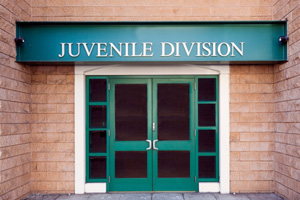
Facing juvenile theft charges can be a daunting and confusing experience for both the accused youth and their parents. These charges can lead to serious consequences, affecting the juvenile’s future education and employment opportunities. Understanding how to effectively defend against these charges is crucial in ensuring the best possible outcome for the young person involved. This article will explore the steps and strategies that can be employed in defending against juvenile theft charges.
At Rubin, Glickman, Steinberg & Gifford, P.C., we understand the complexities of juvenile law and are committed to providing compassionate and comprehensive legal support. With a deep knowledge of the legal system and a focus on protecting the rights of young individuals, we aim to guide families through this challenging process. Our experienced team is dedicated to achieving the best possible results for our clients, helping them navigate the juvenile justice system with confidence.
Understanding Juvenile Theft Charges
Juvenile theft charges can arise from various situations, including shoplifting, burglary, or possession of stolen property. These charges are handled differently than adult charges, often focusing on rehabilitation rather than punishment. The juvenile justice system aims to provide young offenders with opportunities for reform, education, and community service rather than imposing harsh penalties.
Key factors in juvenile theft cases include the age of the accused, the value of the stolen property, and the circumstances surrounding the incident. The legal system takes into account the developmental stage of the juvenile, recognizing that young people are still maturing and capable of making significant changes in their behavior. Therefore, defenses in juvenile cases often emphasize the potential for rehabilitation and the importance of a supportive environment.
Building a strong defense involves examining the details of the case, including the evidence presented by the prosecution. This may involve questioning the validity of the evidence, the methods used to obtain it, and the accuracy of witness testimonies. A thorough investigation can reveal inconsistencies or procedural errors that may benefit the defense.
Steps to Take When Facing Juvenile Theft Charges
When a juvenile is charged with theft, immediate steps should be taken to ensure their rights are protected. The first step is to seek legal representation from a lawyer who specializes in juvenile law. An experienced attorney can provide valuable guidance and support throughout the legal process, from the initial hearing to the resolution of the case.
Next, gathering evidence to support the defense is crucial. This may include obtaining surveillance footage, witness statements, or other relevant documents that can help challenge the prosecution’s case. It’s important to document everything related to the incident and maintain clear communication with the lawyer handling the case.
Additionally, understanding the potential consequences of a conviction and exploring alternative resolutions is essential. Juvenile courts often consider diversion programs, probation, or community service as alternatives to incarceration. These programs focus on rehabilitation and aim to prevent future offenses, offering the juvenile a chance to make amends and learn from their mistakes.
Legal Defenses for Juvenile Theft Charges
Several legal defenses can be employed when defending against juvenile theft charges. One common defense is the lack of intent to steal. In some cases, the juvenile may have taken the property by mistake or without understanding the consequences of their actions. Demonstrating a lack of intent can significantly impact the outcome of the case.
Another defense is the absence of evidence. If the prosecution cannot provide sufficient evidence to prove beyond a reasonable doubt that the juvenile committed the theft, the charges may be dismissed. This defense requires a thorough examination of the prosecution’s evidence and may involve challenging the credibility of witnesses or the admissibility of certain evidence.
Additionally, if the juvenile’s rights were violated during the arrest or investigation, this could be used as a defense. For instance, if law enforcement conducted an unlawful search or failed to provide the juvenile with proper legal counsel, any evidence obtained through these means might be inadmissible in court. Highlighting procedural errors can lead to the dismissal of charges or a more favorable outcome for the juvenile.
How Rubin, Glickman, Steinberg & Gifford, P.C. Can Help
Navigating the juvenile justice system can be complex and overwhelming. At Rubin, Glickman, Steinberg & Gifford, P.C., we offer the legal expertise and compassionate support needed to defend against juvenile theft charges. Our attorneys understand the nuances of juvenile law and are dedicated to protecting the rights and futures of young individuals.
If your child is facing juvenile theft charges, do not hesitate to contact us for legal assistance. Our team is here to help you navigate this challenging time and protect your child’s future. Reach out to us at (215) 822-7575 or visit our contact form for a consultation.

Rubin, Glickman, Steinberg & Gifford P.C.
Pennsylvania Attorney's
September 25, 2024









